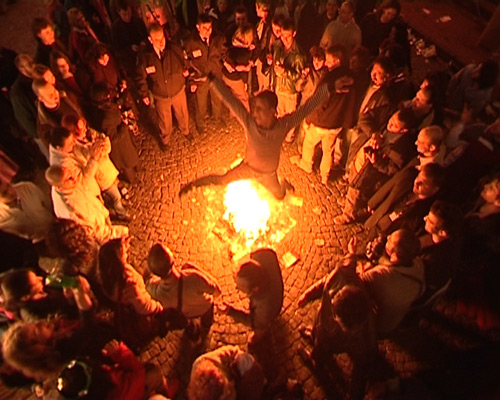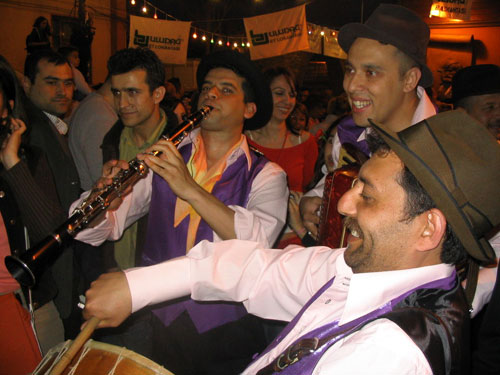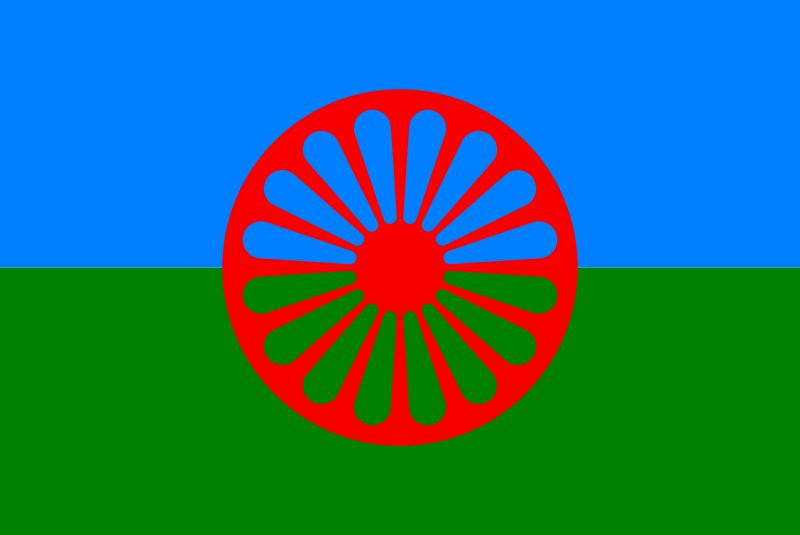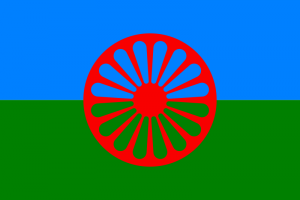May 6
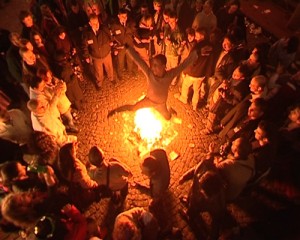
The Day of Hıdırellez (Ruz-ı Hızır) tip-toes across national borders, stretches its limbs across feuding religions, and dances from one culture to another borrowing steps from each it passes.
The ancient spring festival is celebrated from Turkey to the Balkans. The word Hıdırellez itself is a mixed-up amalgamation of the names of the two well-traveled yet elusive prophets it recalls: Hızır and Ilyas (Elijah).
Hızır (Al-Khidr) means, literally, “the green one.” No, he’s not green, but he represents the spring and summertime. Or more accurately, the season lasting from May 6 to November 8 known as Hızır günleri, or “days of Hızır.” Hızır watches over and protect his followers, and is responsible for the growth of crops. Pictured with a long white beard and large white turban…
“Hızır walks the earth with more men than any other Moslem immortal…Hızır is the last-minute rescuer from disaster, a deus ex machina, when all other assistance, natural and supernatural, has failed.”
Walker & Uysal, An Ancient God in Modern Turkey
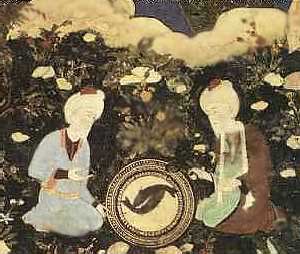
The other season of the Turkish folk calendar lasts from November 8 to May 6. It’s called Kasım günleri, roughly “Days of November”. On May 6 Hızır reaches out his hand to grasp that of his colleague Ilyas, aka Elijah, a prophet from the Qur’an, the New Testament, and the Old Testament.
If you make a wish on Hıdırellez night…
“…it will come true if one just remains alert enough to glimpse the embrace of the star-Lords Hizir and Ilyas in the sky.”
Before Islam, Christianity, and maybe even the Greeks, Hızır was an ancient pagan spring deity, symbolizing water and growth. He gained immortality by drinking of the Spring of Life.
In the Qur’an, Hızır guides the prophet Moses on his journey. He tells Moses he can come along, as long as Moses promises not to talk. After the duo make a safe passage on a friendly ship, Hizir damages the ship, making it unseaworthy. Moses breaks his promise and chastises Hizir for doing such a thing. Later, Hizir and Moses are denied shelter in a town. Leaving, Hizir pauses to mend a crack in the city wall. Again Moses breaks his promise, this time to chide Hizir for rewarding an enemy. Hizir explains his actions. Soon, he explains, there will be a war, and the king will conscript all seaworthy ships, which is why he temporarily damaged the good captain’s ship. As for the wall, he explains a good man hid his money in the wall before he died. Hizir mended the wall keep the treasure protected for the man’s orphan children.
Hızır is the patron saint of travelers, which is why the Roma (Gypsies) revere him. It is they who helped to spread this spring festival from Anatolia to the Balkans (or vice-versa) and beyond. Today Hıdırellez is celebrated with plenty of live music, dancing, picnics and outdoor entertainment into the night.
“Jumping over a bonfire, something that is also seen during Nevruz celebrations, is significant in that fire is seen as a cleansing force, and so leaping over flames on Hıdırellez is also believed to be one way to wash away bad spirits and enter into the new season with a cleansed being.”
Other traditions include the making of yogurt. And the “play of the wish.”
“Everybody throws a sign into the pot holding water…sweet basil, mint, ‘mantuvar’ flower in addition to usually ring, earring, etc. The pot is covered with a cloth on the eve of Hıdırellez and placed under a rosewood.“
The next day, girls stand by as one-by-one their items are drawn from the pot. Whichever song is sung when each girl’s item is removed, dictates what the year has in store for her. Song themes range anywhere from ‘love’ to ‘living abroad.’
So this Hıdırellez make a wish! And watch the skies…

